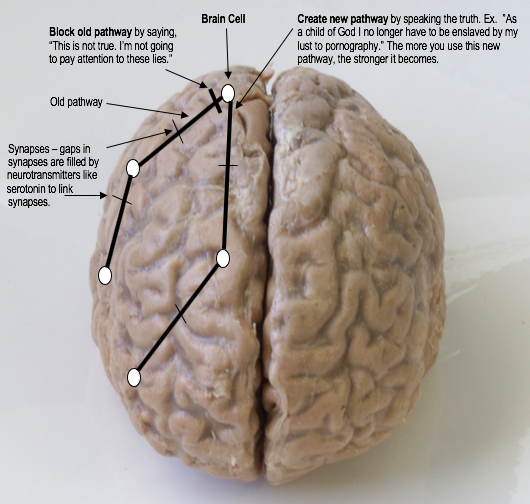“His mother said to the servants, ‘Whatever He says to you, do it.’” John 2:5
We learned in John 2:1-3 that releasing our problems to Jesus can restore our joy. Another way to restore our joy is seen in the next few verses.
While Jesus and His disciples attended a wedding banquet in Cana of Galilee, the unthinkable happened – the hosts ran out of wine (John 2:1-3). To the Jews, wine symbolized joy. Running out of wine at a wedding banquet in the first century was so serious that lawsuits could be brought against you by the offended guests. The presence of wine stated that this was a special day and that all the guests were special guests.
Jesus’ mother informed Christ of the problem and He let her know that she was no longer in control (John 2:4). He was no longer under obligation to do what she wanted when she wanted it. He was now obligated to fully obey His heavenly Father not His earthly mother.
Inviting Jesus to the wedding banquet made it possible for the supply of joy to be renewed and refreshed. But the simple fact that Jesus was there did not bring the joy. It did not replenish the wine. To have your joy restored, you must be willing to do whatever Jesus tells you to do.
“His mother said to the servants, ‘Whatever He says to you, do it.’” (John 2:5). At that moment, Jesus ceased to be a guest and became the One who was in control of the whole wedding. And at that moment, a miracle began to happen. It is easy for us to be willing to have Jesus as a guest in our lives, but are we willing to turn over the controls and “do whatever Jesus tells” us to do? Only then will we see Christ do miracles in our lives.
I greatly admire Mary because she is the mother of the Messiah. For those of us who respect her, it is important to listen to what she told the servants, “Whatever He says to you, do it.”
What does Jesus say to do to have everlasting life? He says, “whoever believes in Him should not perish but have everlasting life” (John 3:16). Have you made this decision to believe or trust in Christ alone to give you never-ending life? The moment you do, Christ gives you everlasting life and He comes to live inside of you through His Holy Spirit (cf. 7:37-39) so that His joy can fill your life to the brim!
“Now there were set there six waterpots of stone, according to the manner of purification of the Jews, containing twenty or thirty gallons apiece.” (John 2:6). The Jews would use the water in these stone water pots for purification. They would come to the pots and let water run over their hands. It wasn’t a matter of sanitation but of ceremony. It did nothing to clean them physically or to wash them spiritually. It was simply an outward show.
An outward show, then or now, has never been able to produce joy. Simply coming to church and going through the motions will not produce joy in your life. They will put you in the place where you can find joy and put you around the people who will help to enhance your joy. But if you hear God’s Word without doing His Word, you will become even more miserable than you were to begin with. If we say the prayers but refuse to listen to God’s Spirit as He speaks to us, then our prayers will only produce emotional and spiritual conflict in us. If we read the Bible with no intention of obeying it, then we will only provoke guilt within ourselves.
“Jesus said to them, ‘Fill the waterpots with water.’ And they filled them up to the brim.” (John 2:7). The servants heard Jesus speak, and they responded in obedience. They began the process of filling the stone jars with water. Each of these jars held between 20 and 30 gallons of water, and there were six jars. That’s up to 180 gallons of water. It would have taken a lot of time and energy to accomplish this task. Trip after trip to the well to draw water and pour it into the jars. And we don’t know how far it was to the well. It would have been tempting to do a half-hearted job. After all, Jesus only said to “fill” the jars with water. He didn’t say how far to fill them. And “fill” is a word that can be interpreted in many ways depending on how hot it is and how late in the workday it is. Anything over half way is full, isn’t it? That’s what potato chip companies seem to think. But these men didn’t think so. When Jesus told them to fill the jars, they took Jesus’ words quite literally, and they filled them all the way “to the brim,” just shy of overflowing. This was more than enough to meet the need that this newly married couple had encountered.
Do we want God’s joy in our lives? (Pause) To receive that joy, we might even be willing to be obedient to God – to a certain extent, right? But are we willing for our obedience to reach all the way to the brim even when the obedience that Jesus asks for doesn’t make sense to us? Or when it requires more work than we had originally intended on giving? Or when it forces us to rearrange our priorities and our schedules like these servants had to do? You see, the amount of joy that we experience is in direct proportion to the amount of obedience that we give. The greater our obedience, the greater our supply of joy will be. Jesus said, “If you keep My commandments, you will abide in My love… These things I have spoken to you, that My joy may remain in you, and that your joy may be full” (John 15:10-11). When Jesus tells you to do something, never do it halfway because Jesus wants to give you joy to the full.
I don’t know where the brim is for you, but I know that to get there, you must do whatever He tells you to do even when it doesn’t make sense. Even when it is inconvenient or painful. It will require hard work. It won’t be easy. You must ask yourself, “How badly do I want the joy that God has to offer?”
Prayer: Lord Jesus, please forgive me for the many times I have treated You like a guest in my life, instead of the Lord of my life. You make it clear that wholehearted obedience to You will give us joy to the full. How easy it is for me to go through the motions without giving You my heart. Lord Jesus, You do nothing halfway and nor should I. The more I know You and what You have done for me, the more I want to serve You as a way of saying “thank You,” even if it does not make sense to me. Please take all that I have, including my obedience, and use it for Your glory. In Jesus’ name. Amen.







